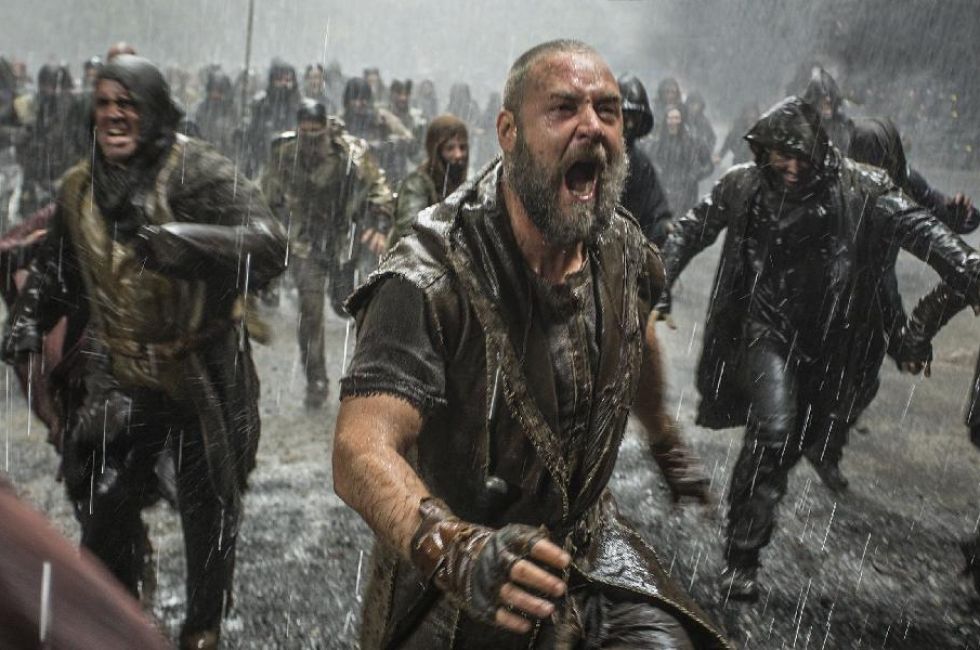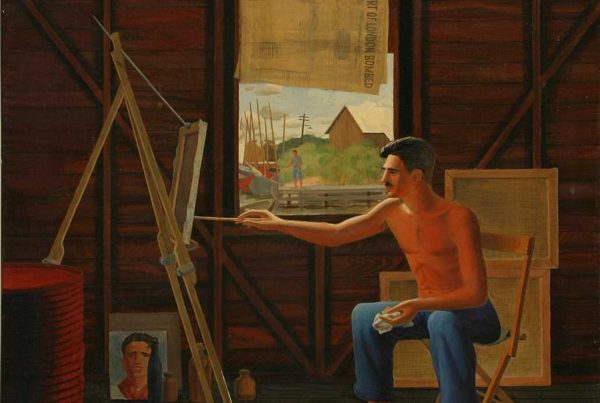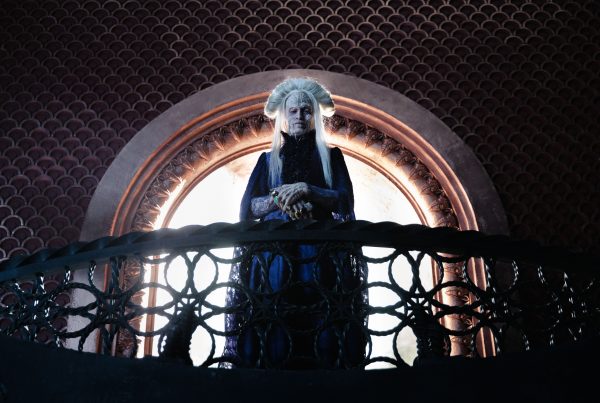
Lambasting Hollywood movies for “left-wing” environmental stances has become de rigueur among conservative critics, with “Happy Feet,” “The Day After Tomorrow” and “Wall-E” being three prominent examples. Darren Aronofsky’s “Noah,” which opens today, makes it easy for them, spending much of the time leading up to its ark-building epiphany making an up-front case for human-caused climate change. “All life blotted out because of what man has done,” Russell Crowe’s Noah opines, ominously. “The storm cannot be stopped, but it can be survived,” he concludes shortly after, forever equipped with laconic declarative statements. “Everything that was good, we shattered,” he says later, surveying a post-apocalyptic landscape from his haven on the ark. And so on, and so on.
These lines, written by Aronofsky and co- screenwriter Ari Handel, were undoubtedly engineered to resonate with today’s audiences. They will leave some viewers decrying the film’s environmental “alarmism” as filtered through Biblical predestiny, while others will appreciate its barely subtextual efforts to raise awareness about our impending, partly self-imposed destruction. I simply found the dialogue didactic, though complaining that a religious film is too preachy is a bit like complaining that a comedy is too funny.

Except that “Noah” is hardly a religious film. It’s a popcorn saga dressed up in modified dogma, a comic-book adaptation by any other name. Aronofsky and Handel took so many liberties with the biblical story that the film’s P.R. team had to write a disclaimer to audiences expecting a faithful rendering of the Genesis drama. For instance, the word “God” is conspicuously absent from the script, replaced by the slightly more agnostic “the creator.” Aronofsky’s strangest deviation—his most obvious Michael Bay concession—is the creation of the Watchers: giant, scary, sometimes eight-armed rock people that are decidedly cuddlier than they appear.
Most surprisingly, the world’s animals, whose impossible cramming, two by two, into the ark is a central facet of the story, are given short shrift here. They descend on the ark in waves of CGI zoos, but once onboard, they are a nonfactor; instead, man takes narrative dominion, with Aronofsky framing his story as an intense domestic psychodrama on the flood-ravaged high seas.
It’s here, when the director allows his conflicts to exist almost solely within Noah’s small family unit, that “Noah” begins to fully self-actualize as a pure Aronofsky film. Sure, his fans will find a few signposts early on, like Noah’s feverish hallucinations of the apocalypse, which play out like a very bad trip from “Requiem for a Dream.” But it’s not until one controversial life-or-death decision from Noah that the movie becomes definitively Aronofskyan, triggering a mental and physical brush with sanity that suggests the tortured protagonists of “The Wrestler” and “Black Swan.” And it’s the very heart the film, the point at which a lavish blockbuster pivots toward artistic impressionism.
It’s also where its controversy is destined to lie. Despite receiving tentative and even full-throated praise from certain Christian organizations, I found its third-act developments to be a ballsy attack on the derangement of religious fundamentalism, not a chronicle of its world-changing uplift. Both the film and its title character are deeply questioning, morally ambiguous and swirling with doubt—not attributes usually associated with pro-religious movies. “Noah” hews closer to Martin Scorsese’s divisive “Last Temptation of Christ” than any other scriptural movie, because it depicts his duality as family man and prophet. He even becomes, to put it bluntly, an insane bastard blinded by false piety. It’s a fascinating transformation to behold, but one that many will find too uncomfortable to bear. Alas, one person’s blasphemy is another’s three-dimensional character development.
“Noah” is wildly all over the place and tries too hard to please everyone, but once it decides where it’s going, it’s as harrowing as movies can be.







